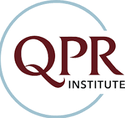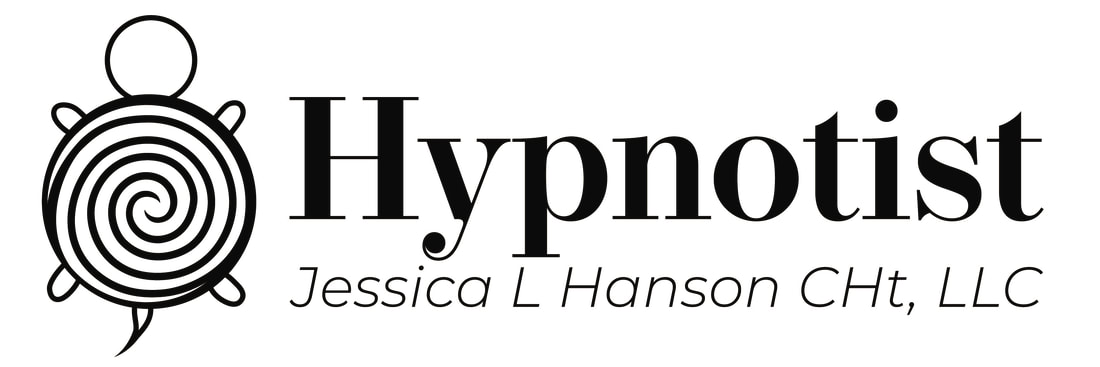Hypnotherapist Jessica L Hanson CHt, LLC

QPR Training - Question, Persuade, Refer
Developed by Dr. Paul Quinnett, QPR is a suicide prevention course for lay and professional people alike.
Cost: $10 per person. Group rates available, depending on size.
(see more info below) or
visit www.qprinstitute.com for more information
Notice to the public about QPR Training
The QPR Institute wishes the public to understand that it is very concerned that those teaching the QPR program are properly trained, licensed, and enjoy active status with the PRP Institute. If you have questions about a trainer, please contact our office for confirmation or credentials. Our Certified QPR Instructors receive frequent updates on research, statistics, breaking information and technical support, vital to the successful teaching of the Gatekeeper function as part of the National Stategy for Suicide Prevention.
We also wish the public to know that unapproved and unlicensed use of the QPR program and its copyrighted materials may be perceived by others as permission granted by the QPR Institute to copy or distribute these materials freely, when this is not the case. Also, the public may assume there is an affiliation between the QPR Institute and an unlicensed or inactive trainer, when no such affiliation exists.
Since there are now many suicide prevention gatekeeper training programs in the marketplace, the public will understand and recognize an active Certified QPR Instructor with the following facts and information:
How QPR Differs From Other Suicide Prevention Programs
QPR recognizes that even socially isolated individuals usually have some sort of contact within their community (e.g., family, doctors, teachers, employers, banker, counselors, etc.)
QPR teaches diverse groups within each community how to recognize the “real crisis” of suicide and the symptoms that accompany it.
QPR addresses high-risk people within their own environments (vs requiring the individual to initiate requests for support or treatment on their own).
QPR, like CPR, does not require formal counseling and/or medical training to be effective.
QPR training specifically targets those groups most at risk for suicide and the least likely to self-refer (e.g. males, young people, older adults, homosexuals, people of color, etc.)
QPR offers increased possibility of intervention early in the depressive and/or suicidal crisis (when the level of suicide may be less).
QPR encourages the gatekeeper to take the individual directly to a treatment provider and/or community resource.
QPR stresses active follow-up on each intervention that occurs.
The individual trained in QPR often plays a pre-existing role in the at risk person’s life. This increases the sense of continuity, support, and the promise of a positive resolution.
QPR is an awareness raising and skill building program. It is theory based and is supported by research on gatekeeper effectiveness.
Developed by Dr. Paul Quinnett, QPR is a suicide prevention course for lay and professional people alike.
Cost: $10 per person. Group rates available, depending on size.
(see more info below) or
visit www.qprinstitute.com for more information
Notice to the public about QPR Training
The QPR Institute wishes the public to understand that it is very concerned that those teaching the QPR program are properly trained, licensed, and enjoy active status with the PRP Institute. If you have questions about a trainer, please contact our office for confirmation or credentials. Our Certified QPR Instructors receive frequent updates on research, statistics, breaking information and technical support, vital to the successful teaching of the Gatekeeper function as part of the National Stategy for Suicide Prevention.
We also wish the public to know that unapproved and unlicensed use of the QPR program and its copyrighted materials may be perceived by others as permission granted by the QPR Institute to copy or distribute these materials freely, when this is not the case. Also, the public may assume there is an affiliation between the QPR Institute and an unlicensed or inactive trainer, when no such affiliation exists.
Since there are now many suicide prevention gatekeeper training programs in the marketplace, the public will understand and recognize an active Certified QPR Instructor with the following facts and information:
- QPR is specific, tested, researched, proprietary, copyrighted, trademarked and the most widely taught gatekeeper training program in the world.
- Classroom time typically ranges from 1 to 3 hours.
- Online QPR is delivered only by the QPR Institute, and never on a video feed of a classroom presentation or webinar.
- QPR can only be taught by active Certified QPR Instructors trained and listened by the QPR Institute. Unlicensed use of the QPR program is prohibited by law and violators are subject to a minimum fine of $100,000 dollars.
- QPR training is delivered according to defined program standards, which context invariably includes a minimum of 21 QPR training slides.
- Each person trained in QPR must receive a printed QPR booklet and card from the licensed instructor as part of the training program. One booklet per family is approved. Certified QPR Instructors who do not provide these booklets and cards are in violation of their licensing agreement and automatically decertified by the QPR Institute.
- Certified QPR Instructors are provided a full complement of training materials and a license to teach QPR. Their license strictly forbids the unauthorized use of any of the copyrighted materials owned by the QPR Institute Inc., or and unapproved additions or subtractions from the core QPR curriculum.
- Certified QPR Instructors are obliged by their licensing agreement to report any copyright violations to the QPR Institute.
How QPR Differs From Other Suicide Prevention Programs
QPR recognizes that even socially isolated individuals usually have some sort of contact within their community (e.g., family, doctors, teachers, employers, banker, counselors, etc.)
QPR teaches diverse groups within each community how to recognize the “real crisis” of suicide and the symptoms that accompany it.
QPR addresses high-risk people within their own environments (vs requiring the individual to initiate requests for support or treatment on their own).
QPR, like CPR, does not require formal counseling and/or medical training to be effective.
QPR training specifically targets those groups most at risk for suicide and the least likely to self-refer (e.g. males, young people, older adults, homosexuals, people of color, etc.)
QPR offers increased possibility of intervention early in the depressive and/or suicidal crisis (when the level of suicide may be less).
QPR encourages the gatekeeper to take the individual directly to a treatment provider and/or community resource.
QPR stresses active follow-up on each intervention that occurs.
The individual trained in QPR often plays a pre-existing role in the at risk person’s life. This increases the sense of continuity, support, and the promise of a positive resolution.
QPR is an awareness raising and skill building program. It is theory based and is supported by research on gatekeeper effectiveness.
Copyright 2024 Hypnotist Jessica L Hanson CHt, LLC.
All rights reserved. Proudly produced by a human:)
All rights reserved. Proudly produced by a human:)
Proudly powered by Weebly
